Sport participation
Young people are becoming an increasingly mature and demanding market in grassroots sport, writes Sport England director of insight Lisa O’Keefe – but there are plenty of opportunities to engage them

Sports practitioners are increasingly turning to the insights derived from high-quality data and research to find new and creative ways of getting people active. Crucially, insight is now being used in boardrooms to lead investment decisions and identify the best methods to measure impact.
The value of insight to community sport is becoming more widely recognised and is inspiring change. This is certainly the case at Sport England, where I lead the relatively new Insight Team. We’re tasked with building a deeper understanding of people’s attitudes and behaviours to develop both our thinking and that of community sport. We use information and insight in a way that drives change – translating insights into actionable business recommendations. The importance of insight is highligted when you consider that, as an organisation, Sport England will invest more than £400m into the 46 national governing bodies between 2013 and 2017.
The challenge of participation
One of our early pieces of work has been to draw together a picture of the key forces shaping the lives of young people today and, importantly, what that means for community sport.
Although the number of people playing sport once a week continues to grow and now stands at 15.6 million, participation among 14- to 25-year-olds has remained stubbornly flat since 2008. Looking deeper, this overall trend masks a significant volatility – with a large number of young people continuing to form, and then break, sporting habits as they travel through life. To start to understand what drives these patterns of behaviour and how to change them, it’s important to understand the current generation of young people, as their environment is so different from the one many of us experienced at their age.
We recently published the findings of our review and many of the insights challenge some of grassroots sport’s most established thinking.
Analysing a wide range of existing data and research, as well as commissioning new field work talking directly to young people, we discovered the following:
• Young people’s behaviour does not always reflect their attitude to sport.
Sport has previously looked at young people’s engagement with sport too much through its own lens. Seen this way, it has been assumed that attitudes and behaviours tend to be linked and growth will result from just changing the offer to tap into the large number of “semi-sporty” young people waiting to take part in sport. In reality, the picture is more complex than simply loving or hating sport.
Behaviours can vary from month to month and, crucially, attitudes and behaviours do not always align. By that I mean that young people who are positive about sport aren’t necessarily actively looking to take part. Indeed, some disinterested young people actually find reasons to be far more active than those with a positive attitude towards sport. Add this to the fact that, for some young people, the word ‘sport’ itself has very negative connotations and you start to get a sense of the complex nature of the youth market. We need to focus on changing behaviours and not attitudes as we previously thought.
• Passive participation can give a false impression of engagement with sport.
Many young people are carried along by friends or family, or what’s happening in their educational setting. This may lead to a false impression of a young person’s engagement with sport, and put them at risk of stopping when their physical environment, or those around them, change. It is a given that young people’s lives are characterised by change whether that be leaving education, starting a job, leaving home or starting a family.
Leaving education represents a cliff edge in terms of accessing tailored sporting offers and work colleagues are less of an influence on participation than friends and family. As horizons broaden, sport has to compete with or connect to wider interests and priorities to stay relevant in the lives of many young people. Overlay the requirement (perhaps for the first time) to make an active choice to ‘opt-in’ to sport, it’s little wonder that many young people drop out at this stage.
Although there are existing examples of good practice, there’s no question that community sport could be far more targeted when it comes to supporting young people at the precise moments of change in their lives. Asking the question ‘what would make it incredibly easy to take part?’ is a good place to start.
• The supply of sport is designed for and reaches those who are already engaged.
Young people are seeking meaningful experiences which benefit them as an individual and help them develop and reinforce their place in their social group. In reality, sport can require compromise and isolation from peers; leading large numbers to turn their back on sport. It’s clear that there’s a need for a broader offer which meets more diverse needs.
The shape of the market
Using the insight, we’ve broken the market down into its component parts. From this, we can determine the relative size and significance of different sections. We know that 20 per cent of young people are consistently active and positive about sport. And 20 per cent are also consistently inactive and uninterested. But it’s the massive 45 per cent who sit in the middle ground where potential participants are less interested in sport but see a functional relevance which, if tapped, could deliver a real boom in participation. Many of these young people dip in and out of participation – the challenge for the sector is to talk and deliver directly to their needs and aspirations to help them build habits.
Finding solutions
• Function over fun
One of the most challenging findings is that – while young people are looking for experiences to be fun – for many people sport was last viewed as fun in primary school. Valuing sport for its own sake gets lost in secondary school as it starts to be perceived as a more serious pursuit for those who are ‘good’ at it and this helps drive a definite shift in teenage years towards a functional rather than sporting motivation for taking part. By this I mean that selling sport as fun will not resonate with many young people.
More success is likely to be had from more adult motivations; demonstrating that taking part in sport can deliver something that they do care about – whether that be looking and feeling good, achieving personal goals, supporting a charity or providing a social setting to be with friends. Another solution is to help them track their progress towards their own goal and reinforcing that a particular activity is helping them.
• The baggage of sport
Sport is an emotive word. While many young people have positive associations with sport, we cannot ignore that many others have a strong negative response to the language of sport, and that this is a key driver for not taking part.
Interestingly, when asked, young people said that front of mind associations with the word ‘sport’ often focus on traditional, competitive school sports. Barriers to participation are often linked to past experiences, levels of interest and perceived competence. The universal concern expressed by the young people we spoke to was a desire not to be embarrassed in front of their peers.
So while the activity may be sport, the message doesn’t need to be and a good place to start is to ask what outcome you’re selling to young people.
Putting the insight into practice
Having better understood the audience it’s trying to engage, the sports sector needs to then design and deliver the type of experiences young people are looking for.
As a general rule, young people are looking for experiences that are:
• Interactive – using technology where and when possible
• Social – maintaining social lives and making connections with other like-minded people
• Rewarding – giving them something back
• Personalised – tailored and able to make/create their own
• Inspiring – unique, different, something they can be proud of
• Creative – allowing them to create their own version of sport
However, our insight has taught us that the way these should be applied differs depending on the audience group. As a result, one of the outputs of our work is a series of “design principles” for the key youth audiences.
For example, the more functional audience is looking for activities they recognise as providing the benefits they are after and they want to see results. The principles are the questions that any delivery plan should be able to answer if it’s to provide the right experience for young people – “will it give me what I want?”, “will I see results?”.
There are already some great examples of national governing bodies, colleges, universities and sports projects taking a different approach to engaging young people – designed around their needs rather than sport’s.
Oldham College, for example, is advertising rock climbing to performing arts students as a way of building upper body strength and overcoming a fear of heights to help them to work in theatre production and set rigging.
Meanwhile, South Essex College is linking up with the Peter Jones Business Academy and offering golf coaching to business students who recognise that many deals are made during an 18-hole round. In other colleges, health and beauty course tutors are supporting their students to recognise the benefits of being fitter for a profession that can be physically demanding. People are now putting the functional first. And then there’s badminton – which has successfully recreated itself around the needs and wants of young people with its Smash Up! programme for 13- to 16-year olds (see pp. 54-56 to read more on grassroots badminton).
Insight is beginning to change the way sport is planned and delivered across the UK. Those responsible are now diving into the detail deeper and further than ever before in the pursuit of interventions which make a guaranteed and lasting impact. We should all be placing insight at the heart of everything we do.
Insight-driven delivery in practice
Run Dem Crew (RCC), an east London night-running collective founded by Charlie Williams, redefines a traditionally solitary sport to empower and engage young people and give them something extra.
RDC provides young people with mentoring and advice, in addition to the opportunity to explore London in a safe, unique, positive and supportive running environment. The message is that it’s not about just running. It’s about being in the pack and a valued part of the crew. It offers real-life benefits and uses relatable icons (such as celebrities) to set good examples.
Charlie Dark, from RDC, said: “Sport for young people in the UK isn’t inspirational – at primary school they’re always running, but lose their love of moving. Competition is good, but focus should be on improving individuals, not comparing them to others. Competition can put people off for life.”
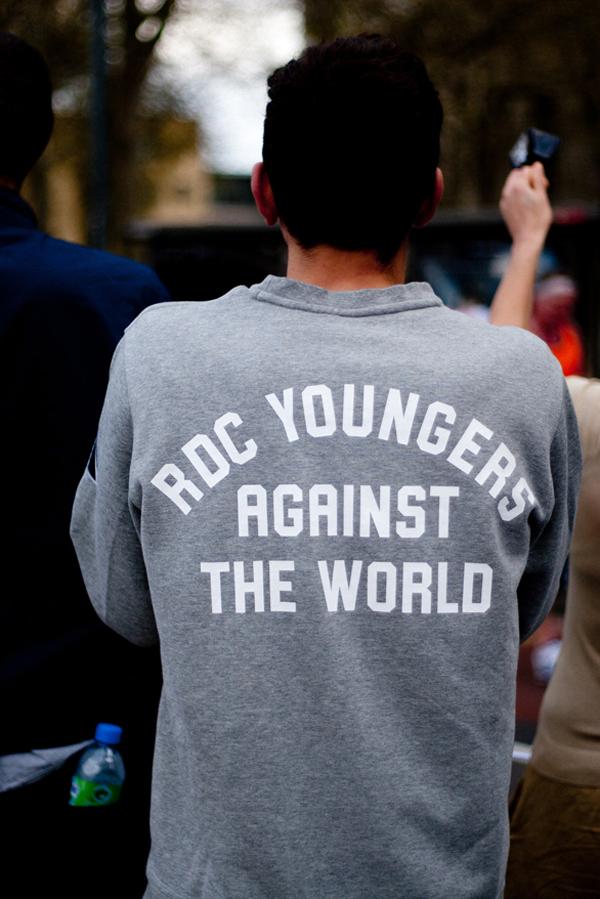
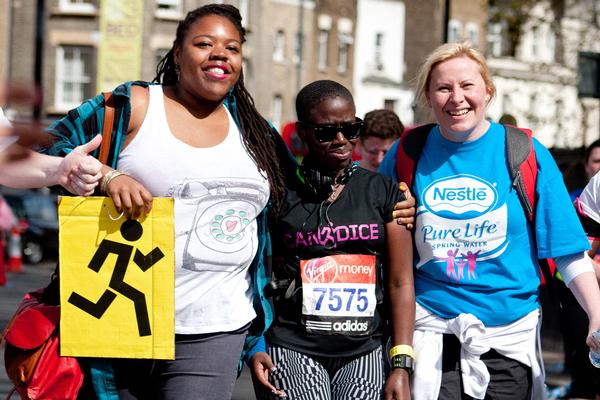
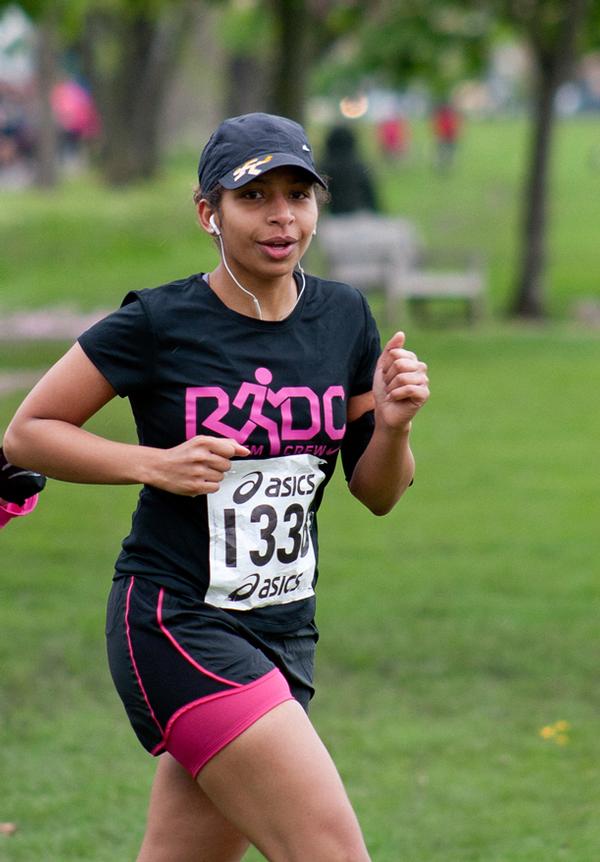
Insight-driven delivery in practice
Smash Up! badminton targets 13- to 16 year-olds and aims to break the perception of badminton as something that happens in church halls for ‘fuddy duddy’ older people. To attract younger audiences wanting a less formal way to play, Badminton England created a ‘music and mates’ environment and branded the related social media activity as Racket Heads to appeal to the youth market. In particular, it specifically separates this version from the more structured PE lesson experience of badminton. Small things like allowing participants to have their mobile phones with them to take breaks to use social media means they feel as though they’re not missing out on their social lives while being at a session. The way instructors blend into the session – rather than stand out at the front giving instructions – is also a key part of the programme. They provide ideas and facilitate the sessions, giving the young people ownership and allowing them to shape the session their way.
George Wood, from Badminton England, said: “Smash Up! has been focussed on taking what’s great about badminton and presenting it in a way that really engages young people looking for a relaxed, casual way to play. It’s as much about music, mates and having a laugh as it is about sport and 1,500 sites have already taken it up.”

Insight-driven delivery in practice
Morning Gloryville gets people active by bringing exercise to an existing group of club-loving party people. Created by two event producers, it plays to the strength of those who dance into the night and challenges those who fall out of bed reaching for the alarm. With the likes of ‘rave your way into the day’ events, the project provides the dance floor, music and the coffee – the rest is up to participants.
Samantha Moyo, founder, said: “It’s about letting people experience something new. People spend all day not being themselves at work – we want to change that.” To see Morning Gloryville in action, visit: http://lei.sr?a=h7a5m
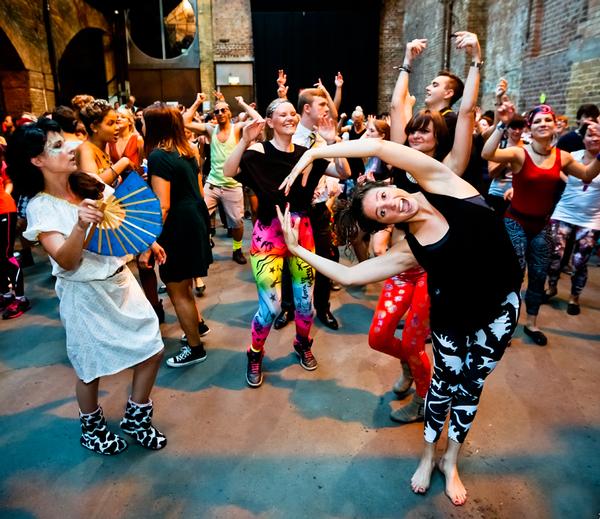
Key to understanding young people and sport
• Young people are looking for functional benefits, not just fun.
• Involve them in design and delivery.
• What friends think of them is key so don’t make the experience isolating.
• Make sessions tailored, personal, social and interactive.
• Old perceptions are no longer valid.
Find out more
W: www.sportengland.org/youthreview
E: [email protected]
T: 0207 273 1895


Recreation Assistant (Dry Site)
Party Leader
Cleaning Assistant
Duty Manager
Duty Manager
Team Leader (Harrow School Fitness Club)
Centre Manager (Leisure)
Director of Operations
Fitness Motivator
Recreation Assistant/Lifeguard (NPLQ required)
Membership Manager
Recreation Assistant
Swim Teacher
Swim Teacher
Chief Executive Officer, Mount Batten Centre
Swimming Teacher
Swimming Teacher
Company profile
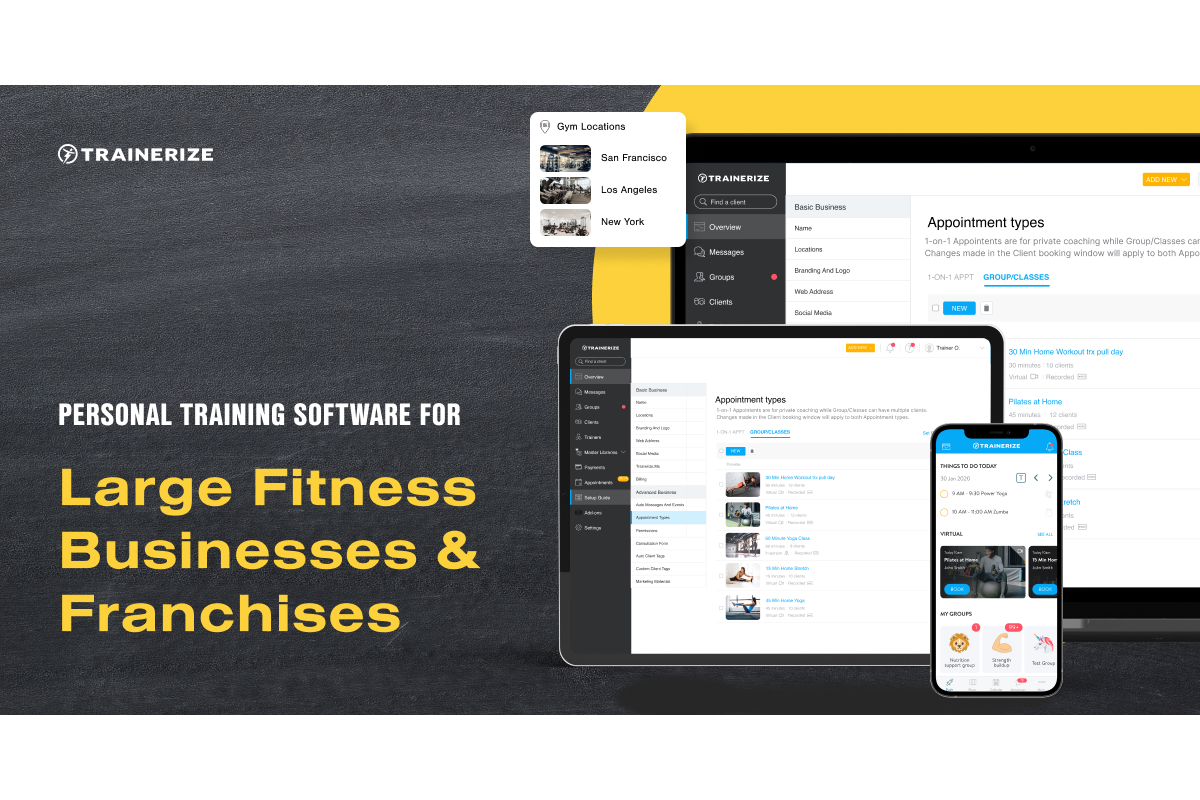
Featured Supplier

Property & Tenders
Company: Knight Frank
Company: Belvoir Castle
Company: AVISON YOUNG
Company: London Borough of Bexley
Company: Forestry England














